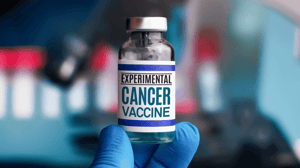An experimental treatment at the Memorial Sloan Kettering Cancer Center in New York, using the BioNTech technique. Half of the 16 patients trialled no longer showed signs of the disease (one of the most difficult to treat) after 18 months.
For the time being, these are only preliminary data, and it will still take a long time before they can be transformed into a treatment for every patient. However, results obtained by oncologists at the Memorial Sloan Kettering Cancer Center in New York from a new personalised therapy by BioNTech to fight pancreatic ductal carcinoma (one of the most difficult cancers to treat) offer some hope.
8 of the 16 patients who received the new treatment responded significantly and were still disease-free after 18 months (an extremely difficult result to achieve). Even the prestigious scientific journal Nature, described these results as very promising in a commentary article. BioNTech is the German company specialising in mRNA vaccines, which produced a vaccine against Covid together with Pfizer. This experimental treatment against pancreatic cancer was developed in partnership with Genentech, part of the Roche group.
Personalised therapy
As described in Nature, oncologists at Sloan Kettering selected 16 pancreatic ductal carcinoma patients with only a 10% probability of surviving for two years. The surgeons removed the tumours, then sent the fragments of each neoplasm to BioNTech's laboratories in Mainz, Germany. There, technicians used highly sophisticated methods to identify and extract certain proteins that are only present on the outer membrane of the tumour cells, and not on that of the healthy cells (in technical terms, these proteins are called neo-antigens).
The researchers then developed a customised mRNA vaccine for each of the 16 patients who took part in the study, 'targeting' about 20 neo-antigens (which varied from patient to patient). Finally, the New York oncologists administered the customised vaccine to the patients, together with chemotherapy and immunotherapy drugs, to enhance the response.
After 18 months, half of the patients had 'produced' specific T-lymphocytes (basic immune system cells) against the tumour, and no longer showed any signs of recurrence, because the body had learnt to defend itself, while the other half became ill again within 13 months.
It is not exactly clear why some patients responded and others did not, but it is thought that the spleen, a vital organ for synthesising elements of the immune system, may have played a role. Five patients, among those who showed no positive effect, had no spleen (it had been removed after previous surgery to stem the tumour), while only two people in the group that responded did not have this organ.
From Covid to Cancer
The trial therefore leaves several questions unanswered, but it also shows the potential of mRNA vaccines in the fight against tumours. This technique, which has already been used against Covid, introduces fragments of genetic code into the body's cells that induce the production of target proteins, in order to train the immune system to quickly recognise them and fight them when it actually encounters them.
This is a complex, customised and therefore, for the moment, very expensive treatment, but these obstacles could be overcome in time. The most important message is that now, even for these patients, there is hope.




